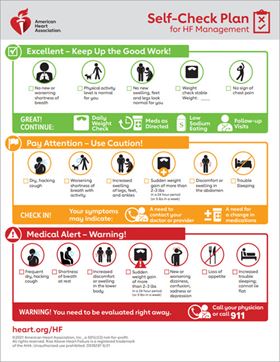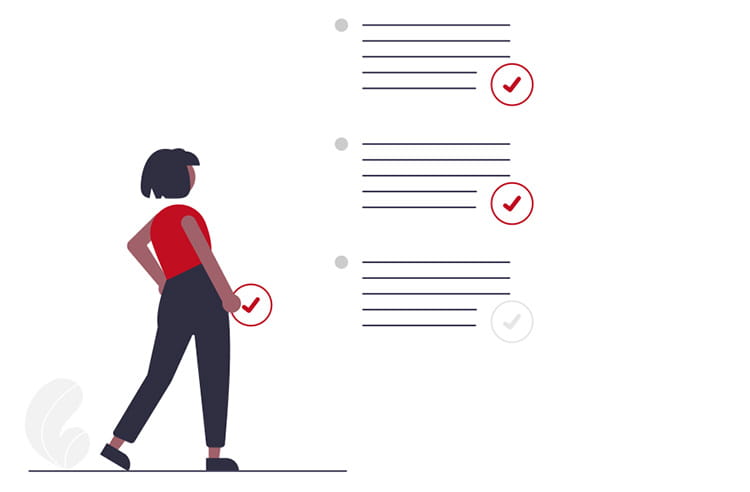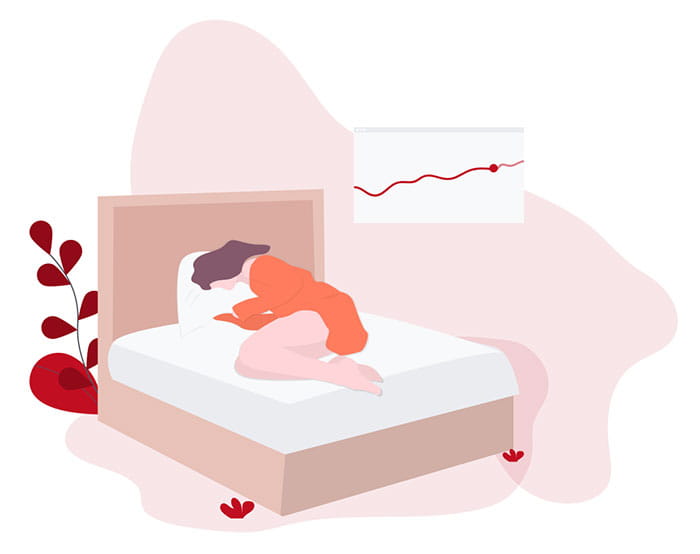Heart Failure Signs and Symptoms
Video: Síntomas de la insuficiencia cardíaca
If you have more than one or more symptoms of heart failure, even if you haven't been diagnosed with any heart problems, report them to your health care professional and ask for an evaluation of your heart.
View an animation of heart failure.
This table lists the most common signs and symptoms of heart failure, explains why they occur and describes how to recognize them.
| Sign or Symptom | People with Heart Failure Might Experience... | Why It Happens |
|---|---|---|
| Shortness of breath (also called dyspnea) | ... breathlessness during activity (most commonly) or while at rest. Sometimes it comes on suddenly at night, making it very hard to breathe unless you get up and move around. You may need several pillows to raise your upper body so you can breathe more easily. | Blood "backs up" in the pulmonary veins (the vessels that return blood from the lungs to the heart) because the heart can't keep up with the supply. This causes fluid to leak into the lungs. |
| Persistent coughing or wheezing | ... coughing that produces white or pink blood-tinged mucus. | Fluid builds up in the lungs (see above). |
| Buildup of excess fluid in body tissues (edema) | ... swelling in the feet, ankles, legs, fingers, abdomen and in other tissues and organs. As a result, weight gain is common. | If you have heart failure, your heart doesn’t pump with enough force. This means that not enough blood is pumped out of the heart with each heartbeat. Then, because the heart isn’t emptying as it should, blood returning from the body can’t enter the heart and backs up in the veins. This forces fluid from the blood vessels into other tissues, causing swelling (edema). |
| Tiredness, fatigue | ... a tired feeling all the time and difficulty with everyday activities, such as shopping, climbing stairs, carrying groceries or walking. You may also feel sleepy after eating, feel weak in the legs when walking and get short of breath while being active. | The heart can't pump enough blood to meet the needs of body tissues. The body diverts blood away from less vital organs, particularly muscles in the limbs, and sends it to the heart and brain. |
| Lack of appetite, nausea | ... a feeling of being full or sick to your stomach. | The digestive system receives less blood, causing problems with digestion. |
| Confusion, impaired thinking | ... memory loss and feelings of disorientation. A caregiver or relative may notice this first. | Changing levels of certain substances in the blood, such as sodium, can result in reduced blood flow to the brain, which can cause confusion. |
| Increased heart rate | ... heart palpitations, which feel as if your heart is racing or throbbing. | To "make up for" the loss in pumping capacity, the heart beats faster. |
| Weight changes | ... sudden weight gain or loss can be a sign that you’re developing heart failure, or that your heart failure is progressing. Ask your health care professional how much fluid to drink every day. | Reduced blood flow to your stomach can make it harder to absorb nutrients from your food and may cause weight loss. Extra fluid retention may cause your weight increase. |
If you have been diagnosed with heart failure, it's important for you to manage and keep track of symptoms. Your health care team will tell you which heart failure symptoms you should track. The most common are blood pressure, heart rate, weight and fluid intake. You may also be asked to keep track of other factors, such as oxygen use and diuretic (“water pill”) use. Always report any sudden changes to your health care team.
Print a Self-Check Plan for help with tracking your heart failure symptoms:
Support that lifts you up

Our online community of patients, survivors and caregivers is here to keep you going no matter the obstacles. We’ve been there, and we won’t let you do it alone.









